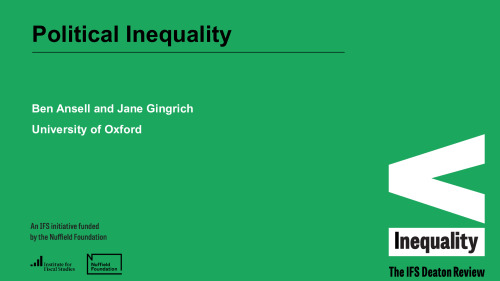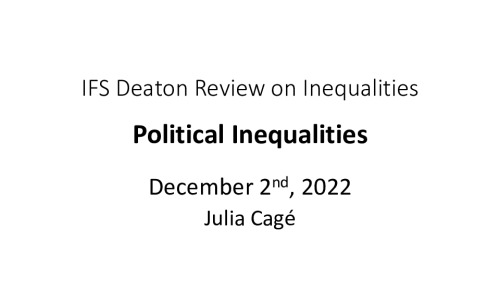Politics is central to inequalities. The balance of power and influence over the political process may be of concern in and of itself, and it can also affect a range of other social and economic inequalities by shaping policy priorities. In turn, inequalities in other domains – such as in economic power – can easily reinforce themselves by shaping political influence.
At this online event, as part of the IFS Deaton Review of Inequalities funded by the Nuffield Foundation, we presented and discussed findings from major new work on political inequalities. Questions addressed included: Why do political inequalities matter? How are voting patterns changing, and how is changing the relationship between socio-economic inequality and political influence? Has policy responsiveness to different forms of inequality changed over time, and if so how? Who is represented in politics, how is this changing, and what impacts does this have on voting behaviour and on policy choices?
The event was chaired by Sir Tim Besley of the LSE and the IFS Deaton Review panel, and featured talks from:
• Ben Ansell, University of Oxford
• Jane Gingrich, University of Oxford
• Julia Cagé, Sciences Po
















